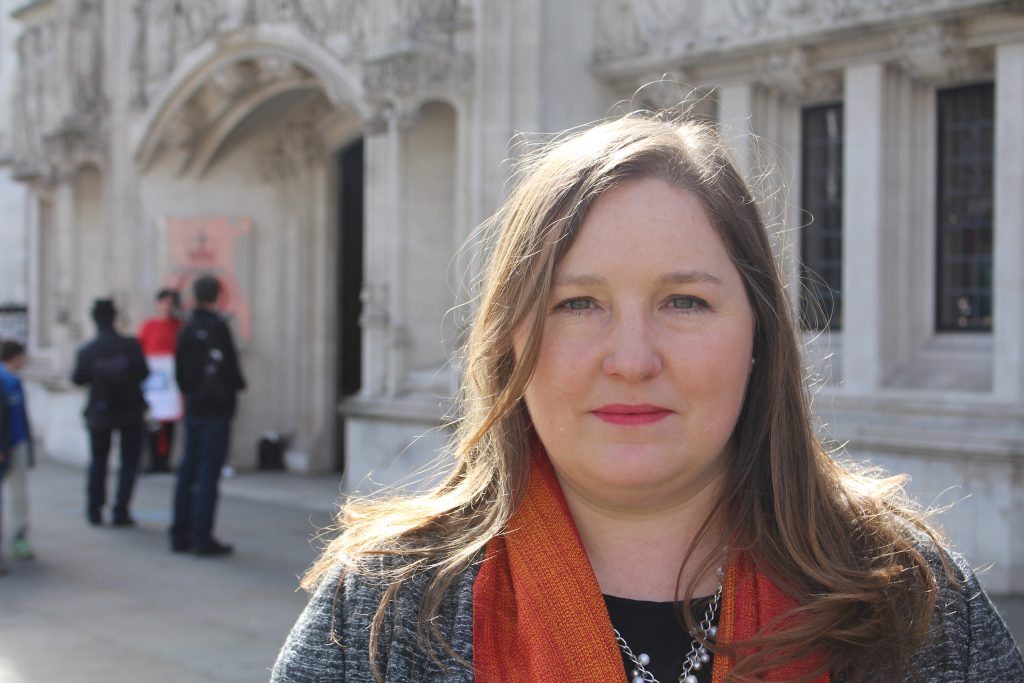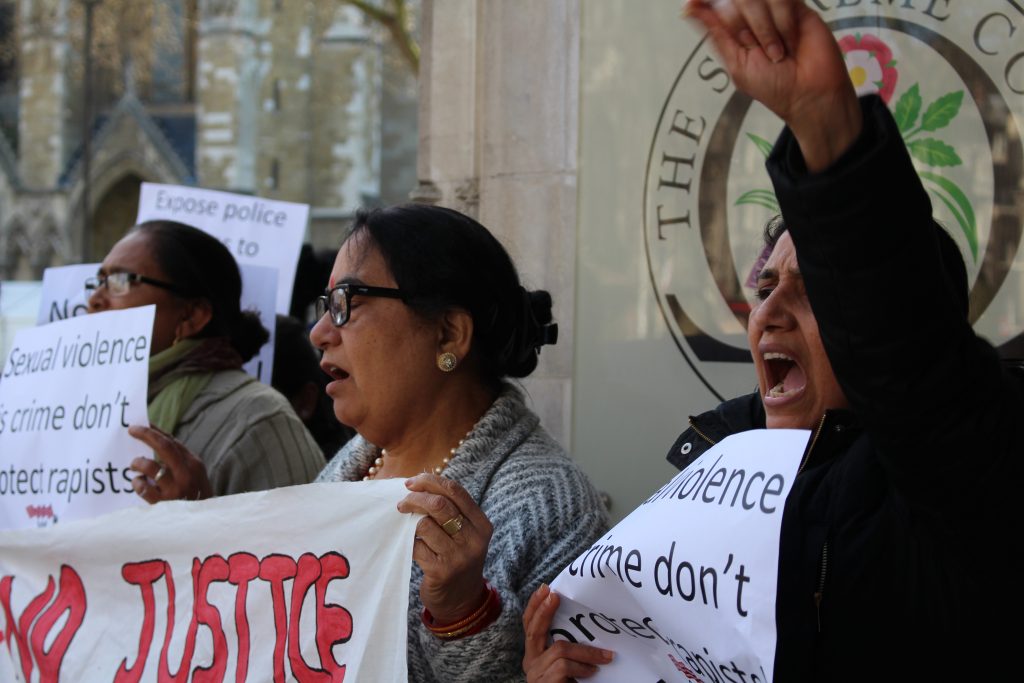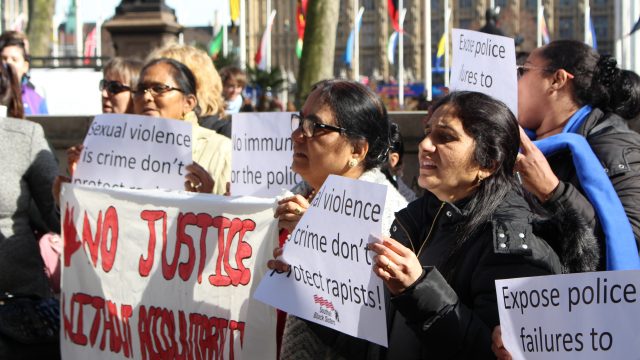By the time John Worboys was jailed in 2009, police believe he’d raped or sexually assaulted more than 100 women. A case brought against the police over their handling of the case could have huge implications for our human rights.
The black cab driver would pretend he was celebrating winning a cash prize, using it as an excuse to offer female customers sedative-laced champagne.
He would then go on to rape or sexually assault them, with the date rape drug obscuring most of their memories. Despite some women going to the police as early as 2003, Worboys continued to attack women he picked up in his taxi until 2008.
The Women Who Sued The Police
 Rachel Krys of the End Violence Against Women Coalition (Photo: Jem Collins / RightsInfo)
Rachel Krys of the End Violence Against Women Coalition (Photo: Jem Collins / RightsInfo)
Two women, known only as DSD and NBV, later took the Metropolitan Police to court, arguing that the force had breached human rights law by failing to believe their claims and not properly investigating. Amongst other things, there are specific guidelines on how to handle cases where date rape drugs are involved. These were ignored.
“Lots of women reported these [assaults] to the police,” explains Rachel Krys, co-director of the End Violence Against Women Coalition, speaking to RightsInfo outside court. “But the police failed to join up the investigation and didn’t take the women seriously, they didn’t follow their own policies.”
In 2014 the High Court agreed – ruling the Metropolitan Police had breached Article 3 of the Human Rights Convention – that no person should suffer inhuman or degrading treatment.
Police couldn’t previously be found to be at fault for failing to identify and apprehend an unknown suspect. The judgment, however, set a precedent that a force could now be sued if it failed to conduct an effective investigation into the most serious crimes.
This also underlines a woman’s legal right to be heard – hopefully helping to stamp out the victim-blaming attitude which can surround cases of sexual violence. Indeed, many women Worboys attacked only came forward after he was accused. They were afraid they would not be believed.
The Metropolitan Police’s Appeal

This is not the end of the story. The Metropolitan Police have now lodged an appeal at the Supreme Court. A spokesman for Scotland Yard said the hearing shouldn’t cast the women’s accounts into doubt, but added:
The case has raised important arguments regarding the boundaries of police responsibility and liability, and we believed that it was important for these principles to be tested before the courts.
In short, they believe they shouldn’t be held accountable through human rights law in these kinds of cases.
A Human Rights Decision That Affects Us All
Here outside @UKSupremeCourt as appeal from Met Police on Worboys case is due to start. pic.twitter.com/hMxPaHAqDp
— Jem Collins (@Jem_Collins) March 13, 2017
The judgment in this case will have much wider implications than for the women attacked by Worboys. It will help to clarify whether any one of us can hold the police to account under human rights law.
“We need to be able to hold the police to account when they get it so seriously wrong that they fail to follow their own policies, where they discriminate against women to such an extent that a rapist is left to rape other women on the street,” says Ms Krys. “The police hold a positive duty to investigate in these cases and to not discriminate against women. Human rights aren’t worth anything if they’re just on paper.”
Pragna Patel, Director of Southall Black Sisters, also told RightsInfo the case is “vitally important” and that the state should have a “duty” to protect women who have survived the most violent crimes.
In this day and age, in the twenty-first century, in the way in which human rights have evolved, women have a right to protection. And that protection is that when serious crimes of violence are committed, the police should investigate with due diligence.
The justices will now listen to all the evidence in the case and will deliver a verdict later this year.







